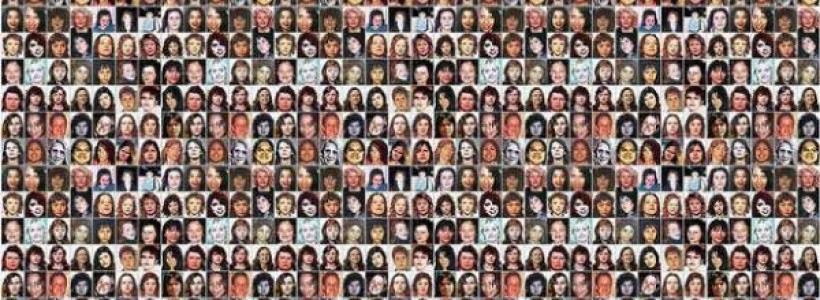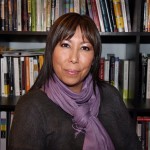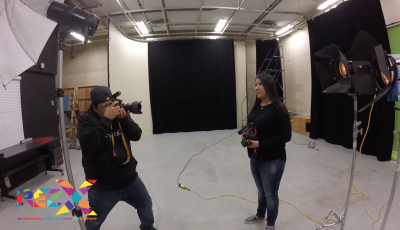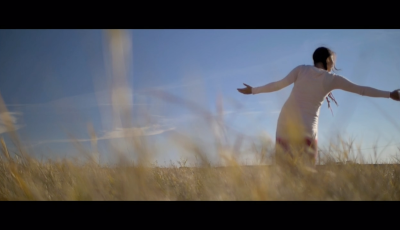Education Column – Shauneen Pete: A Call for Action on Missing and Murdered Indigenous Women
A Call for Action on Missing and Murdered Aboriginal Women: From Ignorance to Awareness to Responsibility
In 2010, Canadian Prime Minister Stephen Harper was quoted as saying “there is no history of colonization in Canada.” In 2014, in reference to the call for a national inquiry into Missing and Murdered Aboriginal women, Harper stated, “it isn’t really high on our radar, to be honest.” While the CBC reported that the comments showed a “lack of respect” the real problem is far more complex than a simple matter of respect.
Harpers comments, like many of the vitriolic comments from readers that follow media stories, point to pervasive ignorance, wide-spread, blatant racism, and frankly, they represent white superiority in action. Ok, Ok, before you get all excited about my word choices here, take pause to dig deeper into what these words mean. Before you dismiss the remainder of this article, take a moment to ask yourself two questions: how am I learning about Missing and Murdered Aboriginal women and when did I first learn about these issues? I’ve been asking these questions this week at the University of Regina and First Nations University of Canada as I host the Missing and Aboriginal Women Symposium (March 23-27, 2015). Two panels challenge faculty to identify the ways in which they are taking up these issues in the courses in the Liberal Arts as well as in our professional programs. A third panel frames the conversation around what students are learning on this issue. On March 27th I hosted a World Cafe event to engage diverse participants in creative dialogue about these issues.
As a professor teaching from social justice and anti-oppressive frameworks I introduce my students (mostly members of the dominant group – white, female, and Christian) to the ideas of social inequality, dominance, and the ways in which institutions like schools and universities contribute to what Rauna Kuokkanen calls “epistemic ignorance” (2007). Think back to your own schooling – how (if ever) did you gain an understanding of Indigenous peoples histories and contemporary issues while you were in school? The lack of access to learning that reflects the experiences and aspirations of Indigenous peoples is reinforced by an educational system that demonstrates nothing but systemic indifference to other than dominant worldviews. Therefore, pervasive ignorance about Indigenous peoples and issues can be understood as the by-product of white superiority in action. I understand white superiority as more than an individual’s attitude, but the very structures that ensure that only dominant worldviews are presented in this case in what is viewed as worthy of being taught. In the case of Harper, his comments rooted in white superiority means that he doesn’t ever have to learn about Indigenous peoples. Issues that don’t matter to the dominant group are not worthy of inquiry, so therefore “it’s not high on our radar”. At the same time, as a white male, his voice is heard by the public as the voice of authority simply because society, rooted in white superiority, values the white male voice the most. When Harper tells the public that this is not an issue worthy of inquiry, the public often accepts this assertion without question. Alternatively, the voices of Indigenous women in particular, are often viewed by the public as political, angry, and biased and get this – racist! And from these starting points Indigenous women’s voices can be and often are viewed as a threat to the public good. Don’t get me started about Bill C51!
So how do we correct epistemic ignorance? I chose to carve some space for discussion about Missing and Murdered Aboriginal women by hosting the Symposium. FNUniv professor, Dr. Jesse Archibald-Barber; Briercrest instructor (Native Studies and English) Johannah Bird; doctoral candidate, Holly McKenzie (UBC student) and Educational Counselling professor, Dr. JoLee Sasakamoose graciously accepted my call for presenters. These presenters shared their approaches to exploring these issues with their students. Johannah explained how she and her students compare the ways missing Indigenous women and white women’s disappearances are treated by media and how the police response is shaped by racial hierarchies. Holly identified four strategies she uses with her learners: she introduces the topic, examines the intersections of race, gender and class to deepen understanding and contextualize difference, and then through question posing her students begin to take responsibility for their own inquiry and activism. Dr. Archibald-Barber identified literature that introduces the topic and encourages his students to frame their creative expression on their real-life experiences and priorities as a way of counteracting absences in the curriculum that the students experience in other courses. Dr. Sasakamoose invites a variety of guests to speak in her classroom, and she requires her students to develop a gendered autobiography which includes an examination into how the students see themselves shaped by their genders, additionally, her students complete a book review on topics of Missing and Murdered Aboriginal women.
Please don’t think that this work is only being undertaken by Indigenous peoples. While not speaking at the symposium I also want to speak to a course that Dr. Brenda Anderson is offering right now through Women’s and Gender Studies. Dr. Anderson’s course on Missing and Murdered Indigenous women offers learners an opportunity to delve more deeply into the issues. As well the timing couldn’t have been better to host the symposium. It follows in the wake of the symposium offered by the FSIN Women’s Commission two weeks ago, and is offered at the same time as the Man Up Against Violence conference organized by faculty in the Centre for Kinesiology and Health Studies (U of R). Man Up offers participants an opportunity to challenge dominant ideas about masculinity and challenges individuals to practice violence reduction in their own lives.
How do we keep the call for an inquiry into missing and murdered Aboriginal women in front of a public that largely does not care? We must be proactive and persistent in our call for change and we must exercise our right as educators to determine curriculum responses that reflect the priorities and experiences of ALL people. We must recommit to designing courses and events that encourage informed participation in the discussion as well as require engaged, active involvement in reducing violence in all its forms, but in particular violence directed toward Indigenous girls and women. My hope is that your answers to the questions that I posed earlier will change through your active involvement – what story do you want to tell about your involvement?
– Dr. Shauneen Pete, RezX Contributing Editor






